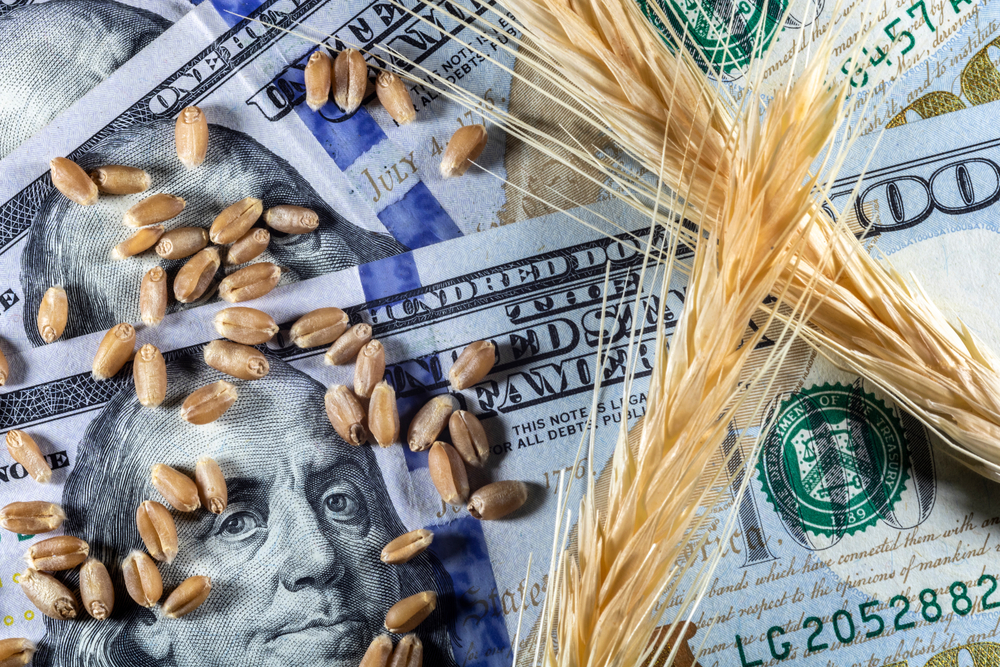
Soft commodities are critical resources that support much of the global economy, providing essential goods for human survival and various industries. These commodities have been traded for centuries, forming the backbone of many economies.
In modern markets, soft commodities are traded in a highly liquid environment, offering numerous opportunities for traders to profit from price movements. This guide will explain what soft commodities are, how to trade them, and what factors influence their prices.
What are soft commodities?
Soft commodities are natural resources that require cultivation, harvesting, or processing before they can be traded. Unlike hard commodities like metals or oil, soft commodities are generally agricultural products that play a crucial role in daily life. These commodities, often called ‘softs,’ include food products, textiles, and other goods.
Examples of soft commodities
Soft commodities vary widely and are produced in different regions worldwide, depending on suitable conditions for their growth or production. Despite these differences, they are grouped together because they are essential for human consumption and are derived from natural processes.
Some common examples of soft commodities include:
- Coffee beans
- Wheat
- Cocoa
- Sugar
- Corn
- Cotton
- Soybeans
- Live cattle
Given their global production and reliance on environmental factors, the prices of soft commodities can be highly volatile. Weather, political instability, and disruptions in the supply chain can all cause fluctuations, creating trading opportunities in both short- and long-term markets.
What are hard commodities?
Understanding the difference between soft and hard commodities is important. Hard commodities are raw materials extracted from the earth, such as crude oil, metals, or natural gas. Unlike soft commodities, which require human effort to grow or harvest, hard commodities are finite resources and are often used in their raw form.
Factors affecting the price of soft commodities
The price of soft commodities can be influenced by a variety of both natural and human-driven factors. Some of these include:
- Weather
- Weather conditions are a major determinant in the success of crop yields and harvests. Favourable weather ensures sufficient supply, while adverse conditions can lead to shortages or oversupply, both of which impact prices.
- Consumer demand
- As consumer preferences shift, the demand for certain soft commodities may increase or decrease. For example, the rise in popularity of speciality coffee has led to fluctuating demand for different varieties of coffee beans.
- Political instability
- Conflicts and political unrest can disrupt the production or transportation of soft commodities, affecting availability and price. For example, the ongoing conflict in Ukraine has impacted global grain markets.
- Supply chain issues
- Disruptions in transportation, labour shortages, and rising fuel costs can limit the availability of soft commodities in the market, pushing prices higher.
- Climate change
- Changes in climate patterns are increasingly affecting agricultural production. Rising temperatures, droughts, and extreme weather events can impact crop yields and alter the production patterns of soft commodities.
- Government regulations
- Some governments impose quotas or export restrictions on certain commodities, affecting global supply and pricing. For instance, regulations or sanctions can limit exports, pushing up the prices of alternative supplies.
- Seasonality
- Many soft commodities have seasonal harvest cycles, which influence their availability and price. Traders often use seasonal patterns to anticipate price movements.
- Global development
- Growing populations and industrialization in emerging markets increase demand for soft commodities, shifting the balance of supply and demand.
Why trade soft commodities?
Soft commodities are essential for daily life, which means their prices are highly sensitive to changes in supply and demand. This volatility presents traders with both opportunities and risks. Soft commodities are frequently traded through futures contracts, allowing traders to speculate on price movements without needing to take physical ownership of the goods.
Futures contracts set a fixed price for commodities, with the trade being settled at a later date. Initially designed to help producers lock in favourable prices, the futures market has evolved into a platform for speculators to trade on price expectations rather than actual asset delivery.
How do you trade soft commodities?
Trading soft commodities through futures is a high-risk strategy that involves the use of leverage. With leverage, traders only need to put down a fraction of the asset’s full value, but their profits and losses are calculated on the entire market value. This means gains can be substantial if the market moves in your favor, but losses can also be magnified if the market turns against you.
Because of this, it’s essential to have risk management tools, such as stop-loss orders, in place to limit potential losses. Traders must also carefully consider whether to go long (buy) or short (sell) based on their market expectations.
You can begin by testing your strategies in a demo account before moving to a live trading environment. VFTradings offers a simple setup to start trading soft commodities with access to thousands of instruments in real-time markets.
Each soft commodity is unique in terms of production, geographic sources, and market vulnerabilities. If you have a specific interest in a soft commodity, like learning how to trade coffee, you can explore detailed guides that provide insight into those markets.
Start trading soft commodities with VFTradings
At VFTradings, we make trading soft commodities fast and accessible. Our platform offers a wide range of soft commodities, along with the tools, market analysis, and expert insights needed to grow your portfolio. With our advanced trading platform, you can take advantage of market opportunities and manage your positions effectively.











